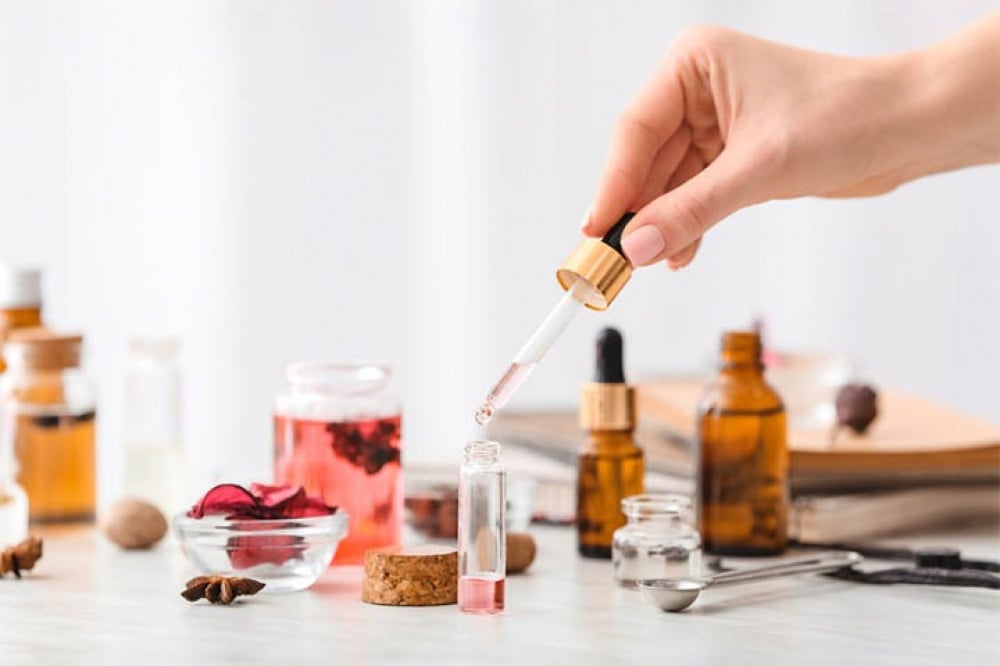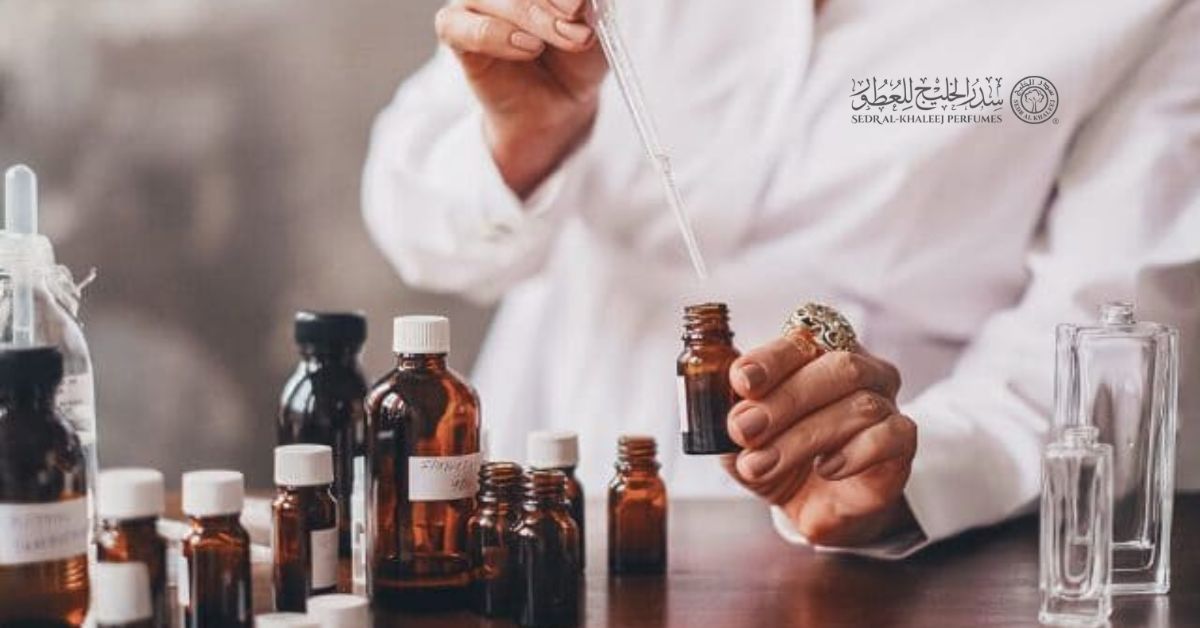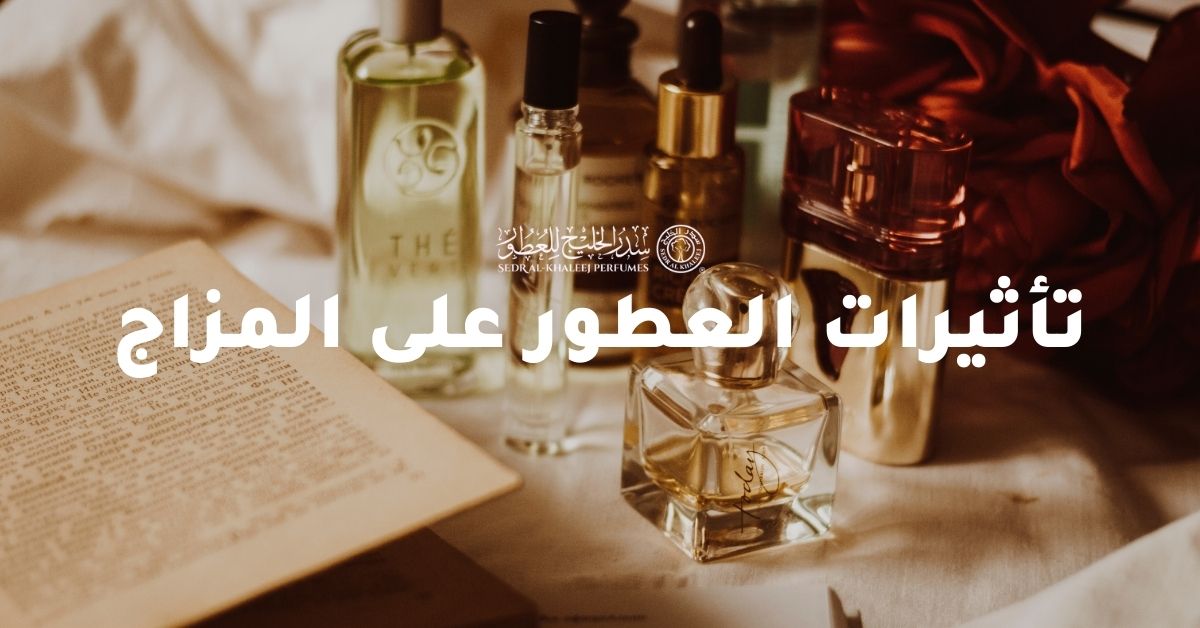Perfumes are an art of beauty and distinction, as they play an undeniable role in our daily lives. Not only does it smell nice, it is an integral part of our personal expression and identity. Perfumes carry in their scent the ability to transport us to different worlds, where art and taste meet.
The effect of perfumes goes beyond the external appearance, as it extends to a profound effect on our mood and psychological state. The importance of perfumes lies in the ability to have a positive impact on our senses and minds.
Developments in the perfume industry
Over time, the perfume industry has witnessed remarkable developments. The history of perfumes takes us on a journey through the ages, where originality meets creativity. With the development of technology, modern methods of extracting raw materials were developed, which improved the quality and stability of perfumes.
But progress in perfumery is not limited to the historical and traditional aspects only. Rather, it has extended to modern technology in manufacturing processes, where the latest technologies are used in extracting raw materials. This advancement not only enhances the quality and stability of perfumes , but also opens the doors of creativity to more sensory and unique experiences.
On the design level, the world of perfumes is witnessing a radical shift in the design of perfume bottles . Modern design is characterized by boldness and creativity, as perfume bottles today are not just a means of containing perfume, but rather a piece of art that reflects the character of the perfume and the uniqueness of the brand.
In the field of packaging, the latest trends are emerging to meet today's consumer expectations. The focus is on sustainability and beauty in packaging, with the use of environmentally friendly materials and attractive designs adding value to the experience of using the fragrance . These developments reflect the industry's desire to innovate and respond to modern customer aspirations.
With advances in these fields, time and place are embodied in every drop of our perfume, making the experience of using perfumes more unique and special in a world full of challenges and changes.

The impact of technology on the quality and stability of perfumes
Technological progress contributes significantly to improving the quality of perfumes in several ways:
Using modern technologies to extract raw materials:
The development in techniques for extracting natural ingredients opens up new possibilities for using pure, high-quality raw materials.
Technologies such as ultra -CO2 extraction and modern distillation contribute to obtaining pure essential oils and high-quality ingredients.
Improving perfume formulas:
Technology allows for better analysis and understanding of aromas and ingredient interactions, enabling perfumers to develop complex and unique formulas.
Careful control of perfume formulations makes it possible to achieve consistent, balanced scents.
The effect of technology on the stability of perfumes:
Development of stabilizing compounds for perfumes:
- Advances in organic chemistry allow for the production of fragrance-fixing compounds that help keep the scent longer on the skin.
- These compounds allow the scents to continue to be released gradually rather than quickly fading away.
Packaging and distribution technology:
- Encapsulation technology can be used to keep perfumes sealed, preventing evaporation of scents and maintaining their purity.
- Modern dispensing techniques include designing fine misters that distribute the fragrance evenly over the skin.
Design and packaging trends:
Modern design of perfume bottles:
- Modern design focuses on making perfume bottles beautiful pieces of art that reflect the brand's identity.
- Designs can include artistic details, innovative shapes, and the use of luxurious materials.
Latest packaging trends:
- The focus on packaging attests to the sustainability of materials and attractive designs.
- Packaging can include eco-friendly materials and recyclable designs, promoting environmental awareness.
Main ingredients in perfumery
The perfume industry is characterized by diversity and complexity, and in this context, the main ingredients come to play a fundamental role in determining the identity and appeal of the fragrance. Let's take a closer look at two of the most notable ingredients: essential oils and natural vs. synthetic.
Essential oils
In the world of perfumes , perfume is not just a scent, but rather the embodiment of art and creativity. Essential oils constitute the true soul of perfume, carrying the task of creating a unique and inimitable scent. In this context, let's explore:
The role of essential oils in creating perfumes
Determining the essential oils for the fragrance layers is an important step in adding uniqueness and distinction to the final scent. Here's how to select the essential oils for each layer:

Top layer (front):
This layer is the first that a person smells when spraying perfume.
It is preferable to use light and refreshing essential oils, such as lemon, bergamot, lavender, or light citrus oils.
Light touches of herbal oils such as peppermint or ginger can also be added.
Middle layer (heart):
This layer is the most stable part and influences the final scent.
Use essential oils that represent flowers and intermediate fruits, such as rose, jasmine, lily, or fruit oils such as strawberry and apple.
Bottom layer (base):
This layer adds stability and warmth to the scent, and appears clearly after some time.
Use heavy, warm essential oils, such as vanilla, frankincense, amber, and sandalwood.
Hints of spicy oils such as cloves or saffron can be added for a unique touch.
The most famous oils used in perfumes
The most famous essential oils used in the world of perfumery represent a rich diversity of ingredients that give a special elegance to the composition of perfumes. Here are some of the most prominent of these oils:
Rose oil
It is used to add romantic floral notes.
It is considered one of the most luxurious and luxurious oils.
Frankincense oil
Enhances the warm and sensual character of perfumes.
It has a unique scent that blends amber and spices.
Vanilla oil
Adds a sweet and warm touch to perfumes.
It reflects femininity and tenderness in the composition of the scent.
Lemon oil
It is used to add notes of freshness and vitality.
It is an ideal complement to fruity and green fragrances.
Oud oil
Adds a luxurious and rich touch to perfumes.
It gives the scent depth and warmth.
Lavender oil
Use to create a calming and relaxing scent.
It is considered a multi-use oil.
Natural vs synthetic materials
In the world of modern perfumery , the balance between natural and synthetic ingredients is vital to achieving the perfect scent and good longevity. Here are some important points about this:
Use of natural ingredients:
- The use of natural ingredients gives fragrances depth and complexity, as such ingredients include essential oils extracted from flowers, fruits, and woods.
- Natural ingredients enhance the sensory response and give the fragrance a natural and authentic character.
Benefit from synthetic ingredients:
- Synthetic ingredients give perfumes greater staying power and better longevity.
- Unique and more complex scents can be achieved through molecular engineering techniques, which allow the creation of ingredients that cannot be obtained naturally.
Balance and innovation:
- Innovation in the field of perfumes lies in the ability to achieve an effective balance between natural and synthetic ingredients.
- This balance allows fragrances to be innovative and sustainable, while benefiting from the high quality of natural ingredients and the good stability of synthetic ingredients.
Responding to environmental needs:
Synthetic ingredients can be used to reduce dependence on natural resources, maintaining environmental diversity and supporting the sustainability of industrial practices.
Consumer trends in choosing perfumes
Niche perfumes
Niche perfumes are luxurious and unique perfumes that are produced in limited quantities and represent luxurious and distinctive aromatic experiences. The niche world of perfumery is characterized by an emphasis on art and innovation, and differs from the larger mass perfumery industry.
Niche perfumes are characterized by several aspects:
Unique formula:
- The ingredients are selected with the utmost care to create a unique formula.
- Rare and luxurious ingredients are used, such as rare flowers, luxurious woods, and expensive essential oils.
innovation and creativity:
- In the world of niche, the perfumer is considered creative, able to exceed expectations and provide new and innovative scent experiences.
- Advanced manufacturing techniques can be used to achieve unique and complex scents.
Exclusivity and exclusivity:
- Niche perfumes are produced in limited quantities, making them unique and exclusive pieces.
- These perfumes can be an expression of personal taste and the desire to own something exceptional.
Stories and philosophy:
- Niche perfumes often carry expressive stories and philosophy, as the perfumer attempts to convey his artistic vision through scent.
- Fragrances can be part of an artistic experience that expresses identity and personality.
The difference between niche perfumes and common perfumes

Composition and quality:
- Niche perfumes are often based on unique and complex compositions, where rare and luxurious ingredients are used.
- Great attention is paid to the quality of ingredients in niche perfumes, resulting in deeper and more complex scent experiences.
innovation and creativity:
- Niche perfumes are characterized by innovation and creativity, transcending traditional boundaries to create unique and innovative scents.
- Niche perfumes tend to use unconventional ingredients and advanced manufacturing techniques to achieve exceptional experiences.
Technical communication:
- Producing niche perfumes is an art, as perfumers engage in artistic experiments to convey a unique message through scent.
- The emphasis is on artistic communication and personal creativity, allowing fragrances to speak more deeply to the senses.
Value and exclusivity:
- Niche perfumes are often more expensive due to the use of rare ingredients and advanced manufacturing processes.
- Attention to detail and superior quality are a sign of exclusivity, as niche perfumes offer unique experiences to individuals.
Perfume sustainability
Eco-friendly perfume concept:
- Eco-friendly perfumes are those that are made using natural and environmentally friendly ingredients.
- These fragrances are characterized by a commitment to sustainability at all stages of the production process, from ingredient selection to packaging.
Sustainability-based perfume ingredients:
- The emphasis in sustainable perfumes is on the use of sustainable natural ingredients that are compatible with the concept of organic farming and biodiversity preservation.
- These ingredients can include sustainable essential oils and plant extracts that have been used sustainably.
Use of natural ingredients:
- It encourages the use of natural ingredients that come from sustainable sources rather than synthetic chemicals.
- This could be like replacing synthetic preservatives with essential oils that protect the fragrance in a natural way.
Sustainable manufacturing processes:
- Modern technology in manufacturing processes includes the use of renewable energy resources and waste minimization techniques.
- It seeks to improve production efficiency and reduce the environmental footprint of the aromatic industry.
How to choose the right perfume
Features of different perfumes
Vase :
- It is characterized by tenderness and femininity.
- Contains floral notes such as rose and jasmine.
- Suitable for formal occasions and daily use.
Wooden :
- Reflects warmth and strength.
- It contains woody ingredients such as patchouli and sandalwood.
- Suitable for fall and winter seasons and evenings.
Fruity :
- Adds a fresh and lively touch.
- Contains fruit ingredients such as orange and berries.
- Suitable for mornings and warm days.
Choosing the right fragrance for your lifestyle:
Based on activities:
- For sports times, you can choose light and refreshing perfumes.
- For formal occasions, floral or woody fragrances can be chosen.
Based on season:
- In the summer, fruity and refreshing fragrances are preferred.
- In winter, warm and woody fragrances can be chosen.
Based on personality:
- For bold personalities, rich and strong perfumes can be chosen.
- For delicate personalities, light floral perfumes can be chosen.
Tips for maintaining the scent of perfume
Choosing suitable areas:
- Apply perfume to pulse points such as the wrist and neck.
- Spraying perfume on the hair improves the persistence of the scent.
Odor fixation:
- Use a moisturizing cream before applying perfume.
- Use higher concentration versions of perfumes.
Try perfumes before buying:
- Before buying a perfume, try it on your skin to see how it reacts to it.
- Choose fragrances that meet your preferences and fit into your daily routine.






Leave a comment
All comments are moderated before being published.
This site is protected by hCaptcha and the hCaptcha Privacy Policy and Terms of Service apply.